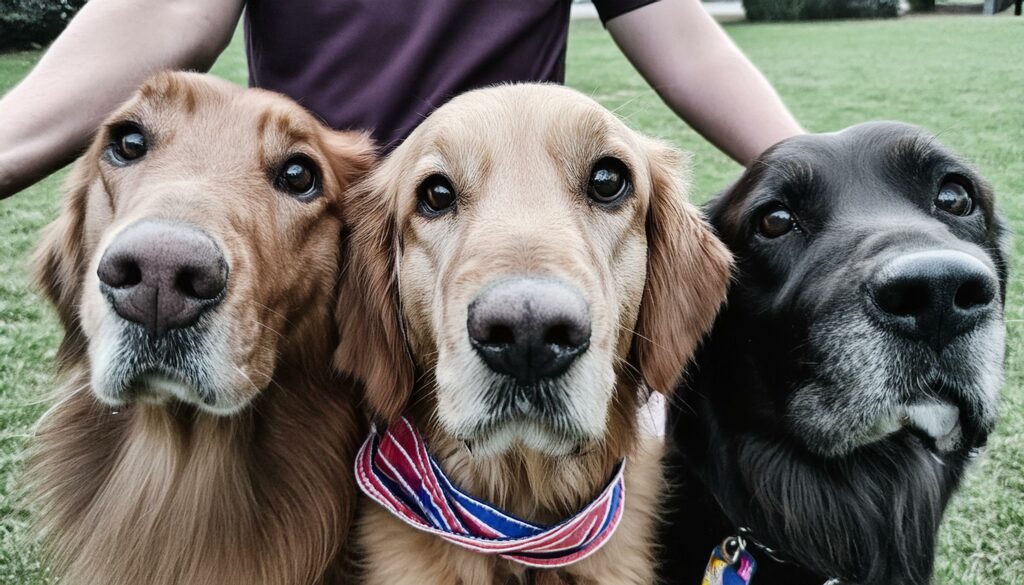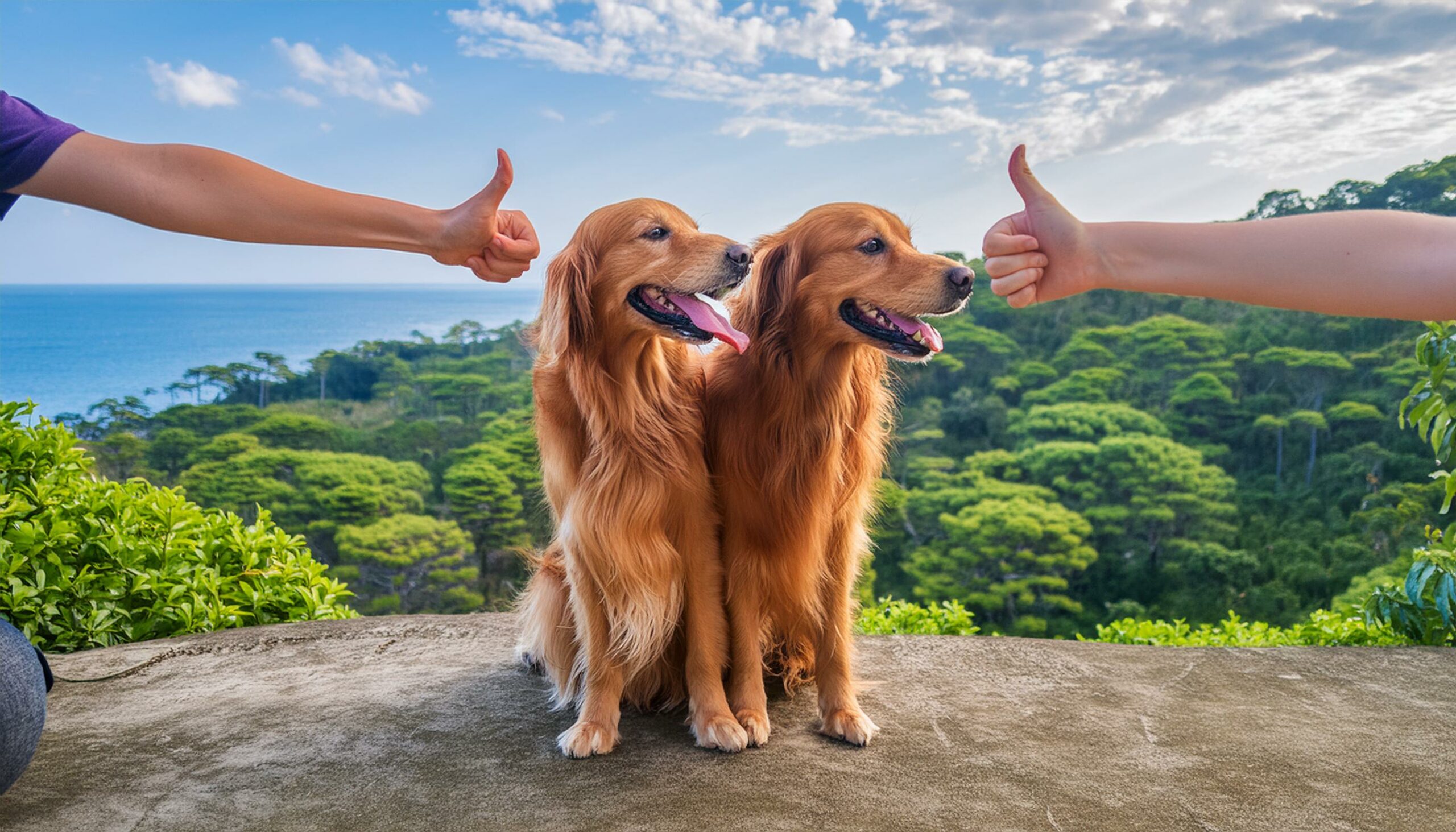Golden Retrievers are renowned for their friendly disposition and affectionate nature. Their loyalty and love make them wonderful companions for individuals and families alike. However, like any relationship, building a strong bond with a Golden Retriever takes time, patience, and effort. In this guide, we’ll explore effective strategies to make Golden Retrievers like you and foster a deep connection with these lovable dogs.
Understanding Golden Retrievers
History and Breed Traits
Golden Retrievers were originally bred in Scotland in the 19th century for retrieving game during hunting expeditions. They are known for their intelligent, friendly, and gentle demeanor.
Temperament and Behavior
Golden Retrievers are typically outgoing, eager to please, and affectionate. They thrive on human interaction and are known for their playful nature.
Building Trust and Affection
Creating a Positive Environment
Golden Retrievers respond well to a nurturing and supportive environment. Providing plenty of love, attention, and positive reinforcement helps build trust and strengthen your bond.
Using Positive Reinforcement Training
Reward-based training methods, such as praise, treats, and toys, are highly effective with Golden Retrievers. Consistency and patience are key when teaching new commands and behaviors.
Meeting Their Needs

Providing Proper Exercise
Golden Retrievers are active dogs that require regular exercise to stay healthy and happy. Daily walks, playtime, and interactive games help fulfill their physical needs.
Ensuring Mental Stimulation
In addition to physical exercise, Golden Retrievers also need mental stimulation to prevent boredom and behavioral issues. Engage them in activities such as puzzle toys, obedience training, and scent games.
Establishing Routine and Consistency
Importance of Routine
Golden Retrievers thrive on routine and predictability. Establishing a consistent schedule for meals, walks, and playtime helps them feel secure and reduces anxiety.
Consistent Training Methods
Consistency is crucial when training a Golden Retriever. Use the same commands and techniques consistently to reinforce desired behaviors and avoid confusion.
Socialization
Exposing Them to Different Environments
Early socialization is essential for Golden Retrievers to develop into well-adjusted adults. Introduce them to various environments, sounds, and experiences from a young age.
Introducing Them to Various People and Animals
Expose Golden Retrievers to different people, including adults, children, and strangers, as well as other animals. This helps them become comfortable and confident in diverse social settings.
Understanding Their Body Language
Signs of Comfort and Discomfort
Golden Retrievers communicate through body language. Learn to recognize signs of relaxation, stress, fear, and aggression to better understand their feelings and needs.
How to Interpret Their Cues
Pay attention to subtle cues such as tail wagging, ear position, and vocalizations to gauge your Golden Retriever’s mood and emotional state.
Respect and Boundaries
Respecting Their Personal Space
While Golden Retrievers are affectionate dogs, they also value their personal space. Respect their boundaries and allow them to initiate contact on their terms.
Setting Boundaries and Rules
Establish clear boundaries and rules to guide your Golden Retriever’s behavior. Consistent enforcement of boundaries helps prevent unwanted behaviors and reinforces mutual respect.
Health and Well-being
Regular Vet Check-ups
Schedule regular veterinary check-ups to ensure your Golden Retriever’s health and well-being. Vaccinations, preventive care, and early detection of health issues are vital for their longevity.
Proper Nutrition and Grooming
Provide a balanced diet tailored to your Golden Retriever’s age, size, and activity level. Regular grooming, including brushing, bathing, and nail trimming, helps keep them healthy and comfortable.
Building a Strong Relationship
Spending Quality Time Together
Bond with your Golden Retriever through shared activities such as walks, hikes, and training sessions. Quality time strengthens your connection and deepens your bond.
Strengthening the Bond Through Activities
Engage in activities that your Golden Retriever enjoys, such as fetching, swimming, or agility training. These shared experiences create positive associations and reinforce your relationship.
Patience and Understanding
Being Patient with Their Progress
Every dog is unique, and progress may vary from one Golden Retriever to another. Be patient and understanding as you work together to build trust and mutual respect.
Understanding Their Individual Needs
Get to know your Golden Retriever’s likes, dislikes, and preferences. Tailor your interactions and training approach to accommodate their individual personality and temperament.
Dealing with Challenges

Addressing Behavioral Issues
If you encounter behavioral challenges such as aggression, separation anxiety, or destructive behavior, seek guidance from a professional dog trainer or behaviorist.
Seeking Professional Help if Needed
Don’t hesitate to seek professional help if you’re struggling to address behavioral issues or develop a positive relationship with your Golden Retriever. A qualified trainer or behaviorist can provide personalized guidance and support.
Rewarding Behavior
Using Treats and Praise Effectively
Reward desirable behaviors with treats, praise, and affection. Positive reinforcement strengthens the desired behavior and encourages your Golden Retriever to repeat it.
Reinforcing Desirable Behaviors
Consistently reinforce good behavior to maintain a positive relationship with your Golden Retriever. Celebrate small victories and milestones along the way.
Maintaining a Positive Attitude
Staying Optimistic Through Setbacks
Building a strong bond with your Golden Retriever takes time and effort. Stay optimistic and focused on the progress you’ve made, even in the face of setbacks or challenges.
Celebrating Milestones Together
Acknowledge and celebrate milestones in your relationship with your Golden Retriever. Whether it’s mastering a new command or overcoming a fear, each achievement strengthens your bond.
Conclusion
Building a strong relationship with a Golden Retriever is a rewarding journey that requires patience, understanding, and dedication. By creating a positive environment, meeting their needs, and establishing trust and mutual respect, you can forge a deep and lasting bond with your furry friend.
FAQs
How long does it take to bond with a Golden Retriever?
Bonding with a Golden Retriever can vary depending on the dog’s personality and past experiences. It may take weeks or even months to develop a strong bond, so patience is key.
What should I do if my Golden Retriever shows signs of aggression?
Aggression in Golden Retrievers can stem from fear, anxiety, or territorial behavior. Consult with a professional trainer or behaviorist to address the underlying cause and develop a management plan.
Is socialization important for Golden Retrievers?
Yes, socialization is crucial for Golden Retrievers to become well-adjusted and confident adults. Exposing them to various people, animals, and environments from a young age helps prevent fearfulness and aggression.
How much exercise does a Golden Retriever need?
Golden Retrievers are active dogs that require regular exercise to stay healthy and happy. Aim for at least 30-60 minutes of moderate to vigorous activity each day, such as walking, running, or playing fetch.
What should I do if my Golden Retriever exhibits destructive behavior?
Destructive behavior in Golden Retrievers can be a sign of boredom, anxiety, or lack of exercise. Provide plenty of mental and physical stimulation, and consider crate training or using interactive toys to redirect their energy.
